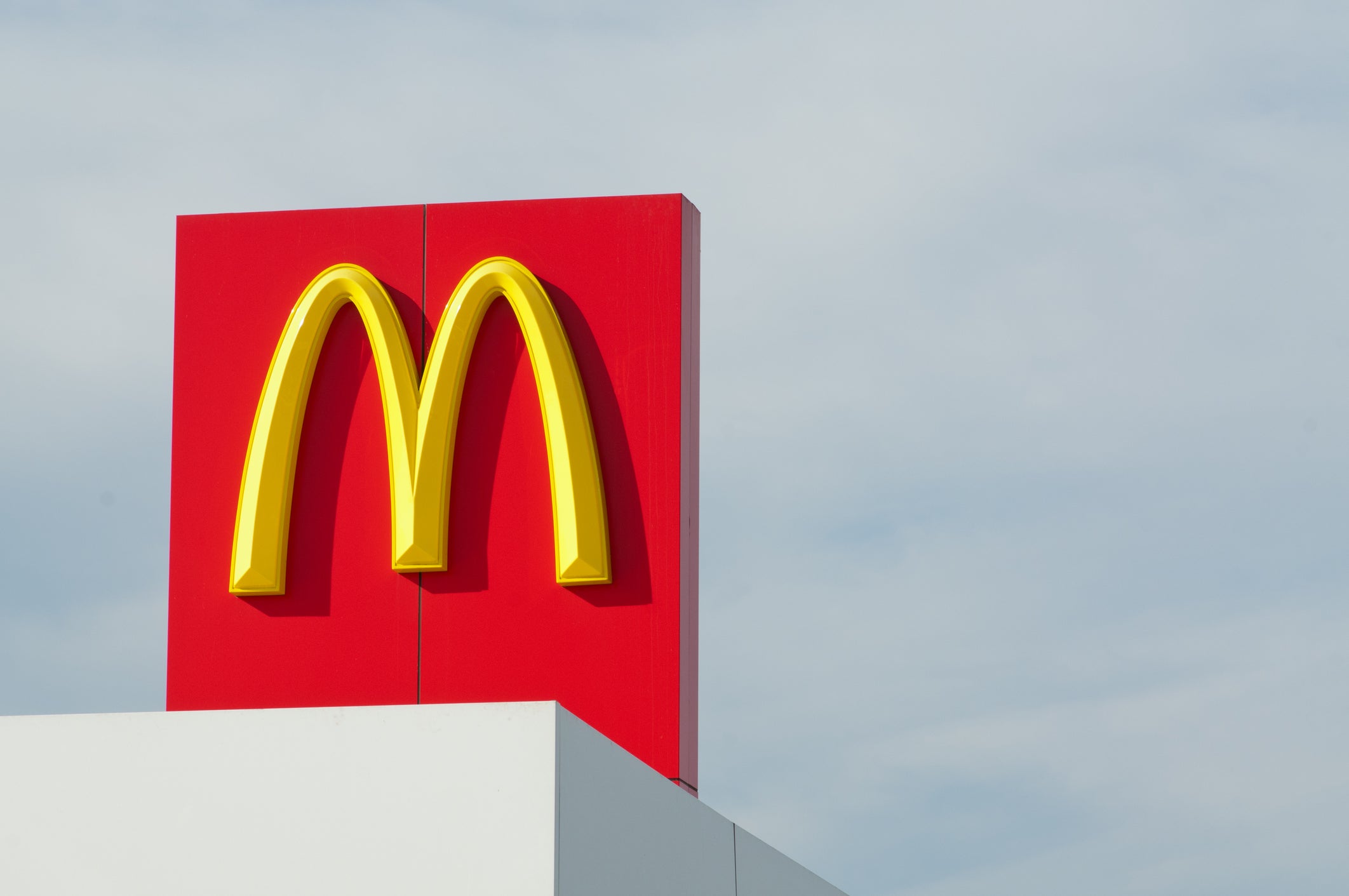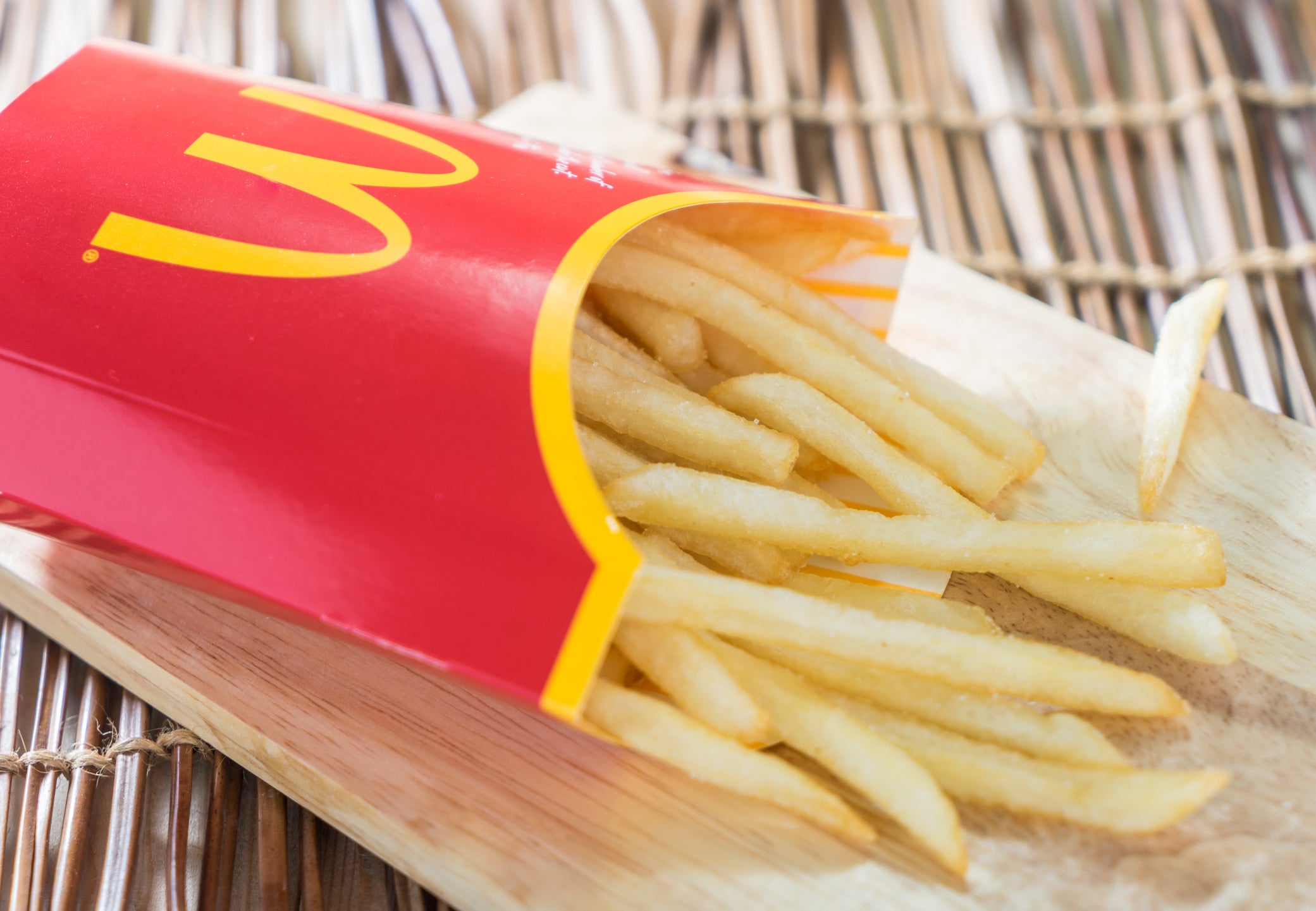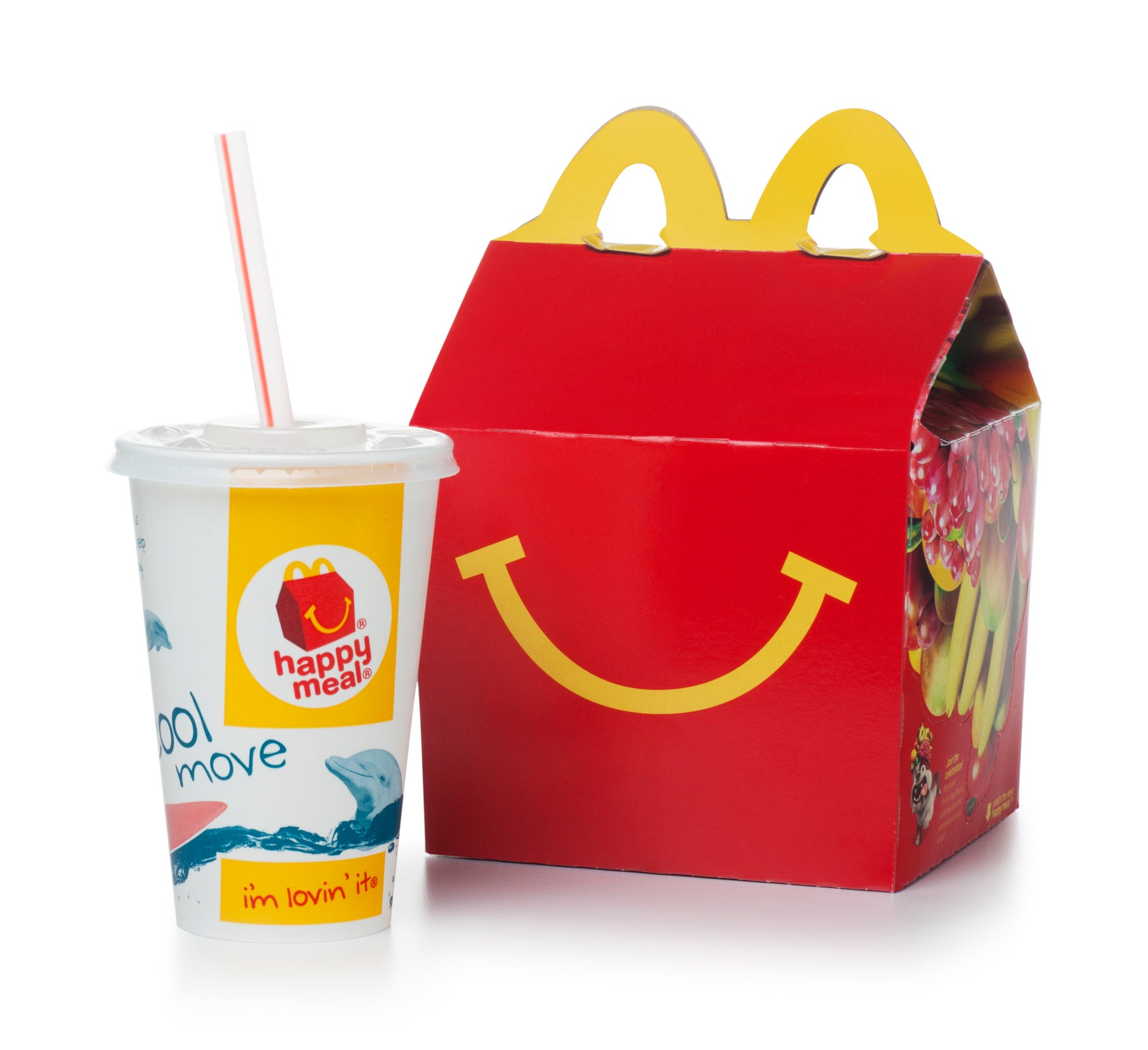The decline of McDonald’s: How the golden arches lost their shine
Last month, fast food behemoth McDonald’s announced its first fall in sales since 2020. Although the chain blamed rising prices, Kate Ng asks if the golden arches – once the go-to spot for kids’ birthday parties and post-night out debriefs – have lost something else along the way


Your support helps us to tell the story
From reproductive rights to climate change to Big Tech, The Independent is on the ground when the story is developing. Whether it's investigating the financials of Elon Musk's pro-Trump PAC or producing our latest documentary, 'The A Word', which shines a light on the American women fighting for reproductive rights, we know how important it is to parse out the facts from the messaging.
At such a critical moment in US history, we need reporters on the ground. Your donation allows us to keep sending journalists to speak to both sides of the story.
The Independent is trusted by Americans across the entire political spectrum. And unlike many other quality news outlets, we choose not to lock Americans out of our reporting and analysis with paywalls. We believe quality journalism should be available to everyone, paid for by those who can afford it.
Your support makes all the difference.A trip to McDonald’s used to be the most exciting thing that could happen to you. The long, stretching expanse of childhood would be set aglow by those brightly coloured chairs and walls; the blinding, traffic light red of ketchup; the tingle of too much salt; the tantalising new toy waiting to be ripped out of its tiny plastic bag. If you got invited to a birthday party at McDonald’s, it was like being invited to the Met Gala, if the Met Gala involved giggling, screaming children running around the indoor playground and an appearance by Ronald McDonald. My parents only took me as a rare treat – they weren’t keen on how unhealthy chicken nuggets and fries were, or on the idea of letting us have our way too often – but this only added to its allure.
Even as a teenager and in my early twenties, McDonald’s still held a special place in my heart. It is, after all, the world’s most famous fast food joint, having been a constant presence since 1940. The brightly lit stores, many of which stay open 24/7, became beacons – either as conveniently cheap places to meet friends and talk for hours, or reliable late night spots to feed drunken, hungry bellies. I had always looked upon those golden arches with fondness – but not so much anymore. This year, I’ve only been to McDonald’s once.
It’s not just me. In July, McDonald’s shared that its sales had fallen by one per cent worldwide across every company segment from April to June. It might not sound like a lot, but this marks the first decline in sales that the fast food behemoth has seen since the final quarter of 2020. Back then, they could blame the pandemic for forcing them to close their doors. Now, a decline of just one per cent in sales has led to the company’s net income falling by 12 per cent to $2bn (£1.55m).
According to the company, the reason for the decline in sales is the ongoing cost of living crisis that is hitting consumers the world over. In the UK, inflation has risen by 2.2 per cent and high food prices mean people are still having to tighten their belts wherever possible. The decline in sales came even though McDonald’s launched a deal that allows customers to get three items for just £3. Elsewhere on the menu, though, prices have risen. For instance, a Big Mac currently costs £4.59, nearly double what it cost in 2014. In 2022, you could get a Mayo Chicken for only 99p on the Saver menu, but that now costs £1.19. It may not sound like much, but inflation has hit every single aspect of life so hard that every penny counts even more than before.
McDonald’s remains a symbol of American dominance and an indelible part of global culture. But those heady days of unwrapping a lovely, greasy cheeseburger and dipping fries into a soft serve feel like part of a bygone era for the brand. It’s not just the cost of living crisis that may be stopping people from heading to Maccy’s. Some customers have suggested there’s been a notable decline in quality, too. “I don’t remember the Big Mac patties being thinner than the pickle. Time to start calling it a ‘little mac’,” said one Reddit user.
The feeling that something has changed plays a big part in why I’ve found myself less drawn to Maccy D’s. It’s no gourmet burger, certainly, but biting into a Double Cheeseburger used to deliver a very specific kind of pleasure. My favourite parts were how the bun would be slightly squashy and soft after being lightly steamed in its wrapper, and choosing the biggest corner of the melty, glooping cheese single to save for my last bite. But more recently, the burger was small and dry; the patties thin and unsatisfying; the fries, unforgivably soggy.
It probably doesn’t help that health consciousness has ramped up in recent years, which means the 406 calories in an unsatisfying Double Cheeseburger – equivalent to nearly a quarter of a woman’s daily recommended intake – could be better eaten elsewhere. Fast food and public health have been at loggerheads for decades, particularly since Morgan Spurlock’s 2004 documentary Super Size Me set the tone for a moral panic about fatness that McDonald’s has never really escaped from – even though no scientific research has ever been able to replicate the mental and physical ill effects that host Spurlock claimed he suffered from eating a larger portion of burgers, fries and soft drinks every day. Nevertheless, our more wellness-focused era has prompted demand for healthier fast food, a space that has been filled by brands like Leon and Pure, which position themselves as being “natural” and “good” for you.

Even if you did want something quick and dirty, there are so many more competitors in the fast food game now. While McDonald’s, Subway, KFC, and Burger King still sit at the top of the list of the biggest fast food restaurant chains in the world, they are by no means the only options we have these days. A plethora of fast food options greet you on the high street, from Greggs to Shake Shack to Wingstop.
In fact, Greggs is the most popular dining brand in the UK today, beating McDonald’s by 2 per cent, according to a recent YouGov poll. The Newcastle-based bakery has more than 2,450 shops across the country and, this year, knocked McDonald’s out of the top spot for the food-to-go breakfast market in the UK. Greggs’ breakfast deal, which includes a sausage, bacon or omelette roll and a drink, starts at £2.85. In a bid to beat its rival, McDonald’s slashed the price of its breakfast deal, comprising a Sausage & Egg McMuffin or Egg McMuffin with a drink, to £2.79. Yet Greggs remains supreme in this area.
Greggs is the most popular dining brand in the UK today, beating McDonald’s by 2 per cent, according to a recent YouGov poll
Another reason McDonald’s may be losing ground is that there’s a new generation of consumers calling the shots. Where boomers and millennials still hold on to nostalgia, Gen Z and Gen Alpha want different things. Where they eat – and, perhaps more importantly, where they are seen eating – is increasingly becoming a lifestyle choice that they can share online for all the world to see, says Carl Clarke, co-founder of Chick’n’Sours and Chicken Shop. A hastily thrown together Big Mac just doesn’t look aspirational enough for the grid, compared to a fried chicken burger stacked to the high heavens.
Clarke, who is in the midst of launching a new fast food concept called Chow Chow, says: “The younger generation want values, they want convenience, they want quality. They also want to know what a company is doing in the world beyond the restaurant’s walls, and they want to be with you and be able to tell their friends about you. Lifestyle is becoming more important as a choice.
“McDonald’s are absolute global leaders in convenience, but when it comes to innovation and lifestyle, I wonder whether McDonald’s has lost that touch… This generation of customers don’t want to go to a place and just buy the food, they want to be on social media telling their friends about it, to wear it. It’s all-encompassing.” A great example of this is Greggs’ collaboration with Primark, which saw festival goers proudly and unironically donning Greggs-branded bucket hats and sliders to party in.
Clarke’s point about people being more invested in what brands do beyond their business is increasingly relevant. McDonald’s faced heat over its perceived support for Israel in its war against Gaza earlier this year, with large numbers of people choosing to boycott the franchise all over the world. The widespread boycott caused the firm to miss a key sales target, its first quarterly sales miss in almost four years. A similar fate recently befell Starbucks, which ousted boss Laxman Narasimhan amid declining sales and customer boycotts over its alleged links to Israel.

McDonald’s chief executive Chris Kempczinski said the backlash was due to “misinformation” among markets in the Middle East and other Muslim-majority countries like Malaysia and Pakistan. The boycott even spread to the UK – perhaps unsurprisingly, given tens of thousands of people joined pro-Palestine marches throughout the country. The company’s UK unit put out a statement denying its support for “any governments involved in this conflict”, but the damage was already done.
“For fast food brands and chains, it can’t just be about the food,” Clarke says. “You need to look for opportunities to do meaningful things, make collaborations valuable. Just being very transparent and honest and human.” In the process of launching Chow Chow, Clarke says he’s keen to start a fast food business that fosters a real sense of community, is accessible and has “bags of personality” – all the things that McDonald’s has become too large for. The company’s behemoth size and endless quest for profit means any attempt to get involved in communities feels commercialised.
So, does this mean McDonald’s is over? Don’t bet on it. It wields a rare kind of status in global culture that gives it a sense of unshakeable permanence. Convenience is king and McDonald’s are the kings of convenience, so people will always head there when they need something quick and dependable. But perhaps something less tangible has been lost in a shift that feels more drive-thru than birthday party, more pit stop than post-night out debrief. It’s yet to be seen whether those golden arches can regain their shine.
Join our commenting forum
Join thought-provoking conversations, follow other Independent readers and see their replies
Comments